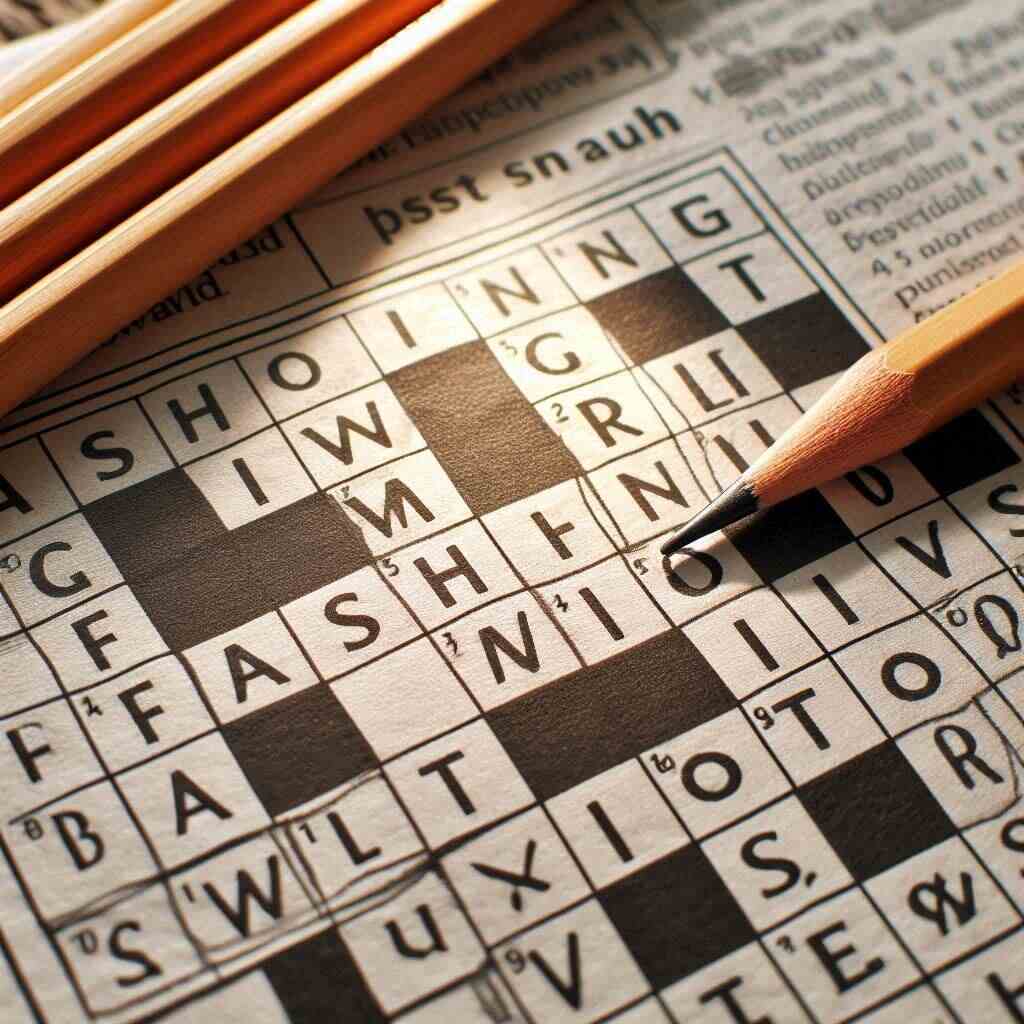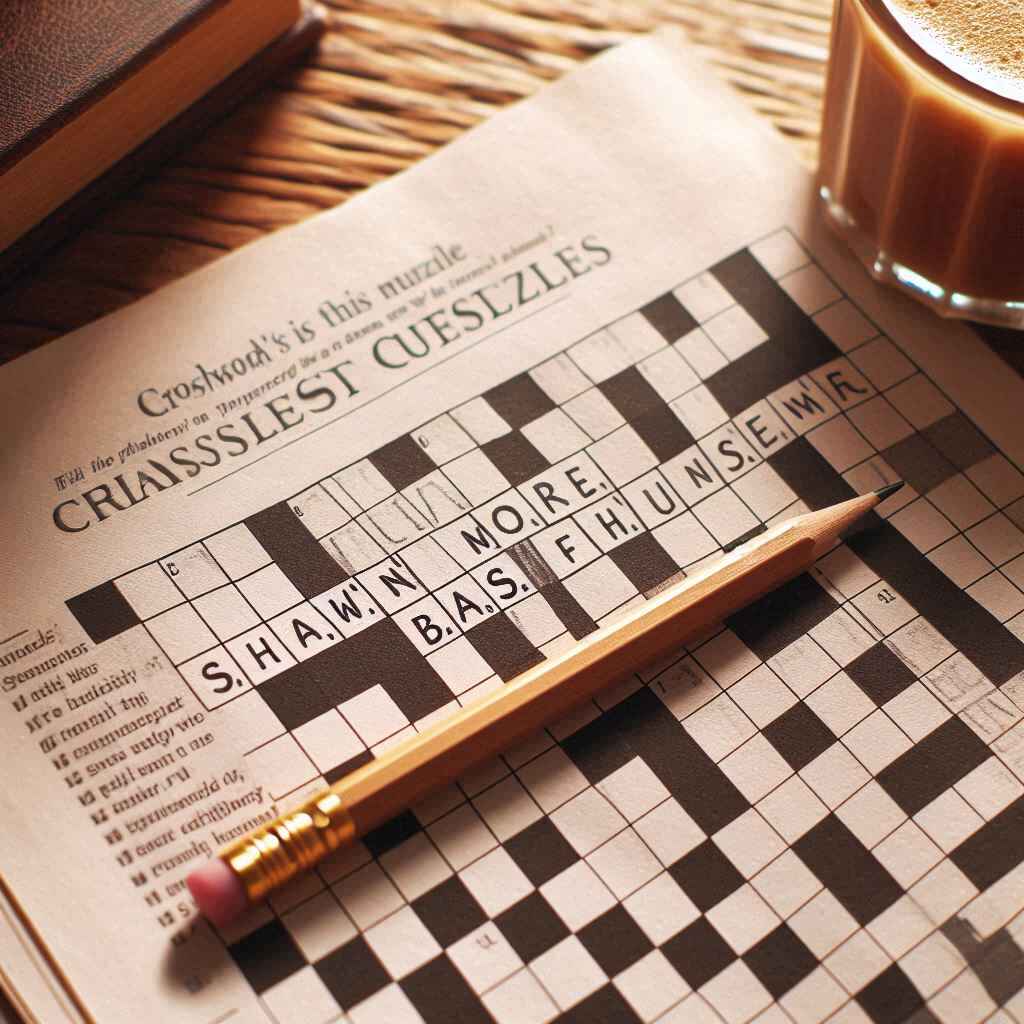Showing More False Bashfulness Crossword
Introduction
Crossword puzzles often look innocent until a clue like “showing more false bashfulness” shows up. It feels poetic yet puzzling. Such phrases challenge solvers to look beyond direct meaning into the layered language structure of crossword creation.
Understanding Crossword Clues
Crossword clues can be either direct (definition-based) or cryptic (wordplay-based). The cryptic type plays with synonyms, word rearrangements, and misleading phrases. Every word in a cryptic clue has a purpose—either to define, misdirect, or signal a transformation.
| Aspect | Details / Facts | Explanation / Relevance |
|---|---|---|
| Crossword Clue | “Showing more false bashfulness” | The clue used in standard and cryptic crossword puzzles. |
| Answer | COYER | Comparative form of coy; means showing greater false modesty. |
| Word Type | Adjective (comparative) | Describes degree of coyness or pretended shyness. |
| Root Word | Coy | Derived from Old French coi meaning “quiet, modest.” |
| Part of Speech | Comparative adjective | Indicates a higher degree of the adjective coy. |
| Literal Meaning | More shy or reserved | Base-level definition without the “false” context. |
| Figurative Meaning | Showing more pretended modesty | Adds the “false” dimension—feigned bashfulness. |
| Synonyms | Shyer, More Demure, More Modest | Related comparative adjectives in similar contexts. |
| Antonyms | Bolder, Braver, More Open | Opposite expressions indicating lack of bashfulness. |
| Keyword Indicator – “False” | Suggests insincerity or anagram in cryptic puzzles | Helps solvers identify the nature of the clue. |
| Keyword Indicator – “Showing more” | Signals comparative form | Direct grammatical hint toward “-er” suffix. |
| Alternate Possible Answer | SHYER | Grammatically correct but doesn’t fit “false” nuance. |
| Difficulty Level | Moderate | Requires understanding of both grammar and figurative meaning. |
| Usage Frequency | Appears in The Guardian and Times crosswords | Common clue structure in British-style puzzles. |
| First Known Use of “Coy” | 14th century (Middle English) | Historical origin strengthens linguistic reasoning. |
| Etymology | Old French coi → Latin quietus (“quiet, calm”) | Indicates evolution from literal quietness to feigned modesty. |
| Comparative Formation Rule | Coy + -er = Coyer | Regular English adjective comparison rule applied. |
| Emotional Tone | Artificial, playful, reserved | Suggests emotional disguise rather than genuine emotion. |
| Crossword Category | Vocabulary / Grammar-based clue | Relies on English language structure and semantics. |
| Clue Type | Definition clue with semantic misdirection | No anagram; purely definitional with figurative meaning. |
Breaking Down the Phrase “Showing More False Bashfulness”

At first glance, the phrase sounds like someone pretending to be shy. However, in crossword logic, this phrase contains grammar cues and wordplay indicators that point toward a comparative adjective form.
- “Showing more” means the answer likely ends in “-er”.
- “False” may hint at something deceptive or artificial.
- “Bashfulness” defines the core idea—shyness or coyness.
Keyword Analysis
“False”
In crossword construction, “false” often functions as a trigger word for anagram formation or a hint at insincerity. Here, it subtly suggests someone pretending to be shy.
“Bashfulness”
Synonyms include shyness, modesty, reserve, and coyness. The answer must connect to one of these while fitting the comparative indicator.
Common Synonyms for Bashfulness

| Word | Meaning | Comparative Form |
|---|---|---|
| Shy | Timid, bashful | Shyer |
| Coy | Pretending modesty | Coyer |
| Modest | Humble, not boastful | More modest |
| Reserved | Restrained | More reserved |
Among these, only “shyer” and “coyer” form grammatically sound comparatives without “more.”
Decoding the Crossword Clue

To decode, break it into parts:
- Definition: “Showing more bashfulness”
- Indicator: “False” (suggests insincerity)
So, the clue points to someone pretending to be shyer—not genuinely modest but putting on an act.
Possible Answers Explained
1. COYER
Derived from “coy,” meaning artfully shy or modest, especially to attract attention. Adding “-er” creates “coyer”, which fits the definition “showing more false bashfulness.”
2. SHYER
While “shyer” also fits the “showing more bashfulness” portion, it lacks the “false” nuance. “Shyer” means genuinely more shy, not pretending to be.
Why “COYER” Fits Best
The word “coy” originates from the Old French coi, meaning quiet or reserved. Over time, it evolved to mean pretending modesty—precisely false bashfulness. Therefore, “coyer” (showing more of that false modesty) aligns perfectly with the crossword clue.
Answer: COYER
Cryptic Crossword Techniques
Solvers often overlook how clue constructors hide meaning. “False” may act as a red herring (misdirection) or word indicator (anagram signal). Here, it’s semantic misdirection—guiding solvers toward the pretense of bashfulness.
Recognizing Clue Indicators
| Indicator | Function | Example |
|---|---|---|
| False | Suggests insincerity or anagram | “False lead” → anagram indicator |
| Showing more | Comparative suffix | “Showing more joy” → happier |
These indicators guide word formation logically rather than literally.
How to Approach Such Clues
- Identify the definition – usually at the start or end.
- Spot indicators – like “false,” “showing more,” “perhaps.”
- Test comparatives – add “-er” when grammar allows.
- Cross-check synonyms – use bashfulness-related terms.
- Confirm meaning – ensure the word matches both definition and indicator.
Examples of Similar Crossword Clues
- “Showing more modesty” → shyer
- “Displaying extra coyness” → coyer
- “More demure than usual” → shyer
- “Pretending to be humbler” → coyer
- “More insincere in modesty” → coyer
Common Pitfalls in Solving
- Overthinking “false” – not every “false” means anagram.
- Ignoring grammar – “showing more” nearly always implies a comparative.
- Missing tone – bashfulness vs. pretended bashfulness changes meaning completely.
Tips for Mastering Crossword Logic
- Track common indicators (false, perhaps, oddly, showing more).
- Build synonym banks for recurring emotional terms.
- Focus on grammar structure—comparatives, tenses, plural forms.
- Practice with old British crossword archives; they frequently use such linguistic patterns.
Conclusion
The crossword clue “showing more false bashfulness” resolves cleanly to “COYER.”
It encapsulates a comparative form (“showing more”) and an insincere modesty (“false bashfulness”). Understanding how such clues intertwine semantics, grammar, and psychology transforms confusion into comprehension.
FAQs
1. What does “showing more false bashfulness” mean?
It describes someone pretending to be even more shy or modest than they truly are.
2. What is the crossword answer for “showing more false bashfulness”?
The correct answer is COYER.
3. Why not “shyer”?
“Shyer” reflects genuine bashfulness; the clue specifies “false,” meaning pretended modesty—best represented by “coyer.”
4. What does “coy” mean?
“Coy” means showing artificial modesty or shyness, often to gain attention or admiration.
5. How do I identify clues like this in crosswords?
Watch for comparative indicators like “more” and descriptive hints such as “false,” which often redefine emotional states metaphorically.







